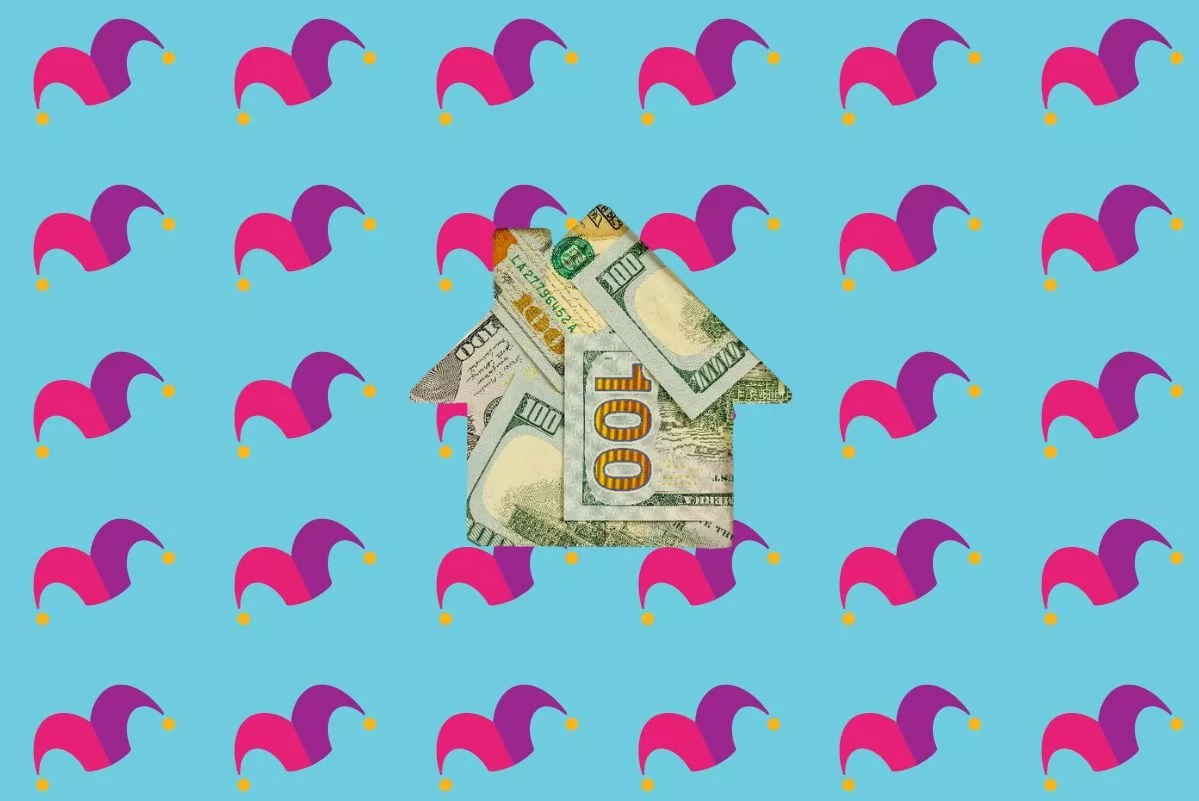
Image source: The Motley Fool/Upsplash
If you’ve been renting for a while and you decide to buy a house, you know your decision to become a property owner is a major lifestyle change. You’ll be more tethered to your place, for example, because you’d have to sell (or find renters) if you wanted to relocate.
While many people have some idea of what to expect when they apply for a mortgage and get on the property ladder, there are some huge surprises you may not be anticipating. Here are some of the biggest shockers new homeowners may face if they purchase a property when they are used to renting one.
RELATED: Today’s Mortgage Rates
1. Maintenance takes more time and money than you might think
When you own your own place, there’s no landlord to call if something goes wrong. You have to deal with it. This means fixing it yourself or finding a repair person that you have to pay. This can get very expensive, especially if you have a major issue like a leaking roof.
Even if you don’t have a big problem, it still takes time and money to take care of your place. You’ll need to mow the grass and shovel the snow if you have a lawn or live in a cold climate. You may have to clean out your gutters. Changing your air filters needs to go on your to-do list.
And these are just a few of many, many new obligations you’ll be taking on.
You need to be mentally and financially prepared for these new added challenges. Typically, this means saving around 1% to 4% of your home’s cost each year for maintenance expenses. You may also want to get familiar with watching YouTube videos of how to deal with more minor problems yourself. You’ll be less likely to want to call a plumber on Thanksgiving to deal with that water leak when their bills come out of your own bank account.
2. Property taxes can be a huge expense
Property taxes may also come as a shock to you when you become a homeowner. The median cost of real estate taxes paid in the U.S. was $2,971 according to The Ascent’s property tax research, but in some states, your tax bill is likely to be much higher.
Many mortgage lenders require you to add a portion of your annual tax bill onto each mortgage payment, and then that money will go to an escrow account to pay your taxes when they’re due. But not all do. If you don’t escrow your property taxes, you’ll need to be sure you’re saving this money on your own so you’re ready when the county sends you the bill.
You’ll also want to take the cost of property taxes into account when you decide if your home is affordable. Total costs of housing, including these taxes, shouldn’t exceed 30% of your income.
Finally, you need to be prepared for homeowners insurance premiums. They are typically much higher than renters insurance premiums, since you’re now responsible for covering the dwelling as well as your stuff.
Unfortunately, homeowners insurance premiums can also increase over time, and sometimes by a lot, even if you don’t make a claim. This can happen if there are a lot of natural disasters in your area or if some insurers pull out of your local market. Premiums nationwide for home insurance were actually up 23% year-over-year in January 2024 compared with January of 2023. This big increase is driven by a number of states where climate change is causing more disasters and where insurers are struggling with large claims payouts.
It’s important to be prepared for these costs and to make sure you’re ready to pay them before you commit to purchasing a home, or you could be left with regrets. You can do this by:
- Practicing living with your new housing costs: If your mortgage, property taxes, and insurance will be higher than your current rent payment, practice making that payment for a while. You can do this by paying the additional money into savings. So, for example, if your current rent is $1,500 a month and your new costs will be $1,800, you’d put the extra $300 a month into savings for a few months to be sure you’re OK with your new living costs.
- Opening a savings account for home maintenance: As soon as you become a homeowner, or even before, open a savings account that is dedicated to home maintenance costs. Aim to put around 1% to 4% or your home’s value into it each year.
- Look into property tax and insurance costs before you buy: You can get quotes from a home insurer and check county tax records to see what you’re likely to pay for these expenses.
By taking these steps, you can make certain your purchase is truly within your budget and you’ll be less likely to face unpleasant financial surprises.
Alert: our top-rated cash back card now has 0% intro APR until 2025
This credit card is not just good – it’s so exceptional that our experts use it personally. It features a lengthy 0% intro APR period, a cash back rate of up to 5%, and all somehow for no annual fee! Click here to read our full review for free and apply in just 2 minutes.
We’re firm believers in the Golden Rule, which is why editorial opinions are ours alone and have not been previously reviewed, approved, or endorsed by included advertisers.
The Ascent does not cover all offers on the market. Editorial content from The Ascent is separate from The Motley Fool editorial content and is created by a different analyst team.Christy Bieber has no position in any of the stocks mentioned. The Motley Fool has no position in any of the stocks mentioned. The Motley Fool has a disclosure policy.






